ড. আতিউর রহমান কানাডার ইউনিভার্সিটি অব গুয়েলফ-এর খাদ্য, কৃষি ও সম্পদ অর্থনীতি বিভাগের একজন সহযোগী অধ্যাপক। তাঁর শিক্ষাজীবনের সূচনা হয় বাংলাদেশ কৃষি বিশ্ববিদ্যালয়ে, যেখান থেকে তিনি ১৯৮০ সালে কৃষি অর্থনীতিতে বি.এসসি (সম্মান) এবং ১৯৮২ সালে মার্কেটিং-এ বিশেষায়িত এম.এসসি ডিগ্রি অর্জন করেন। পরবর্তীতে তিনি কৃষি অর্থনীতিতে পিএইচডি করার জন্য কানাডায় যান।
ড. রহমানের গবেষণা বিশ্বব্যাপী খাদ্য ব্যবস্থার জটিল গতিপ্রকৃতি বোঝার ক্ষেত্রে গুরুত্বপূর্ণ। তাঁর কাজের মূল ক্ষেত্রগুলো হলো আন্তর্জাতিক বাণিজ্যের অর্থনীতি, নাফটা-এর মতো আঞ্চলিক বাণিজ্য চুক্তির প্রভাব, কৃষি পণ্যের মূল্য অস্থিরতা এবং কৃষি-খাদ্য নিরাপত্তা বেষ্টনী কর্মসূচির কার্যকারিতা। প্রকাশনাগুলোতে প্রায়শই গম, গরুর মাংস ও শূকরের মাংসের মতো গুরুত্বপূর্ণ খাতে কানাডিয়ান কৃষির প্রতিযোগিতামূলক সক্ষমতা নিয়ে আলোচনা করা হয়। বাংলাদেশের শিক্ষা ও কানাডায় গবেষণার অভিজ্ঞতা তাঁকে নীতি এবং বাস্তব জীবনের প্রভাব—উভয় ক্ষেত্রেই বিশেষ দৃষ্টিভঙ্গি প্রদান করেছে।
💬 প্রশ্নোত্তর পর্ব:
প্রশ্ন: আপনার শৈশব ও জামালপুরের জীবন সম্পর্কে জানতে চাই। আপনার পারিবারিক প্রেক্ষাপট কেমন ছিল?
উত্তর: আমার জন্ম জামালপুর জেলার একটি গ্রামে। আমার বাবা একজন স্বল্প আয়ের সরকারি কর্মচারী ছিলেন। আমাদের পরিবার বেশ বড় ছিল; আমি তিন ভাই ও চার বোনের মধ্যে এক। বাবার সামান্য আয়ই আমাদের পুরো সংসার চালাত। তিনি জীবনে কখনো একশ টাকার নোট দেখেননি। আমাদের জীবন খুবই সাধারণ ছিল। আমি গ্রামের প্রাইমারি স্কুলে পড়াশোনা শুরু করি। তবে আরেকটি সমস্যা ছিল—বাবার চাকরির জন্য আমাদের প্রায়ই এক জায়গা থেকে অন্য জায়গায় চলে যেতে হতো, তাই আমাকে ঘন ঘন স্কুল পরিবর্তন করতে হয়েছে।
প্রশ্ন: উচ্চশিক্ষার জন্য ঢাকায় আসা এবং প্রাথমিক দিনগুলো কেমন ছিল?
উত্তর: এস.এস.সি পাশ করার পর আমি ঢাকায় আসি। আমাদের এক দূর সম্পর্কের মামা ছোট একটি ভাড়া বাসায় থাকতেন, আমি সেখানেই উঠি। মামার আর্থিক অবস্থা ভালো ছিল না। কলেজে ভর্তি হলাম, কিন্তু জীবনধারণ এবং পড়াশোনার খরচ বড় চ্যালেঞ্জ ছিল। নিজের খরচ চালানোর জন্য টিউশন খুঁজেছি, কিন্তু পাইনি। মামার পরিবার খাবার দিত, কিন্তু তার বাইরে আর কোনো সাহায্য করতে পারত না। প্রয়োজনীয় বইপত্র কেনার টাকাও ছিল না।
প্রশ্ন: বিশ্ববিদ্যালয় জীবন অত্যন্ত সংগ্রামী ছিল। বিশেষত কোন সমস্যাগুলো আপনাকে সবচেয়ে বেশি প্রভাবিত করেছিল এবং কীভাবে তা সামলেছেন?
উত্তর: এইচ.এস.সি পরীক্ষার পর বিশ্ববিদ্যালয়ে ভর্তি হলাম। আমার জীবন তখন আরও অনিশ্চিত হয়ে পড়ে। আমি একটি মেসে থাকতাম, কিন্তু আমার কাছে টাকা ছিল না। দৈনিক খাবারের খরচও চালাতে পারতাম না। একদিন আমার কাছে মাত্র ২০ টাকা ছিল, যা দিয়ে আমাকে ১৫ দিন চলতে হতো। আমি আর কোনো পথ দেখতে পাচ্ছিলাম না। পড়াশোনা ছেড়ে বাড়ি ফেরার সিদ্ধান্ত নিয়েছিলাম। বাবাকে চিঠি লিখেও জানিয়েছিলাম। ঠিক সেই সময়ে, বিভাগের একজন বড় ভাই আমার সঙ্গে দেখা করতে এলেন। তিনি আমার মনোমোযোগ দেখে কারণ জানতে চাইলেন, আমি সব কষ্ট খুলে বললাম। তিনি ধৈর্য ধরে শুনলেন এবং বললেন হাল ছাড়বেন না।
প্রশ্ন: সেই বড় ভাইয়ের সাহায্য আপনার পথকে কীভাবে প্রভাবিত করেছিল?
উত্তর: সেই সহায়তা জীবনের মোড় ঘুরিয়ে দেয়। তিনি আমার জন্য একটি টিউশন জব ব্যবস্থা করে দেন। বেতন ছিল মাসে ১৫০ টাকা। তখন এটি আমার কাছে অমূল্য মনে হয়েছিল। ছোট এই আয়ের মাধ্যমে আমি খাবারের খরচ চালাতে পারি এবং পড়াশোনা চালিয়ে যেতে পারি। এক মেস থেকে আরেক মেসে চলে যেতাম, সর্বদা সস্তার বিকল্প খুঁজতাম। সেই ছোট সাহায্য আমাকে অধ্যবসায়ের শক্তি দেয়। আমি ডিগ্রি সম্পন্ন করি, তারপর মাস্টার্সও। এই সংগ্রাম আমাকে অধ্যবসায়ের মূল্য শিখিয়েছে।
প্রশ্ন: বাংলাদেশ কৃষি বিশ্ববিদ্যালয় থেকে শিক্ষা শেষে আপনি কানাডায় পিএইচডি করতে যান। বাংলাদেশের অভিজ্ঞতা কীভাবে আপনার গবেষণাকে প্রভাবিত করেছে?
উত্তর: বাংলাদেশ থেকে কানাডায় আসা বড় পদক্ষেপ ছিল। বাংলাদেশ কৃষি বিশ্ববিদ্যালয়ে প্রাপ্ত ভিত্তি আমার জন্য অমূল্য। আর্থিক অনিশ্চয়তা এবং কৃষিনির্ভর সমাজের সংগ্রাম প্রত্যক্ষভাবে দেখার অভিজ্ঞতা আমাকে বিশেষ দৃষ্টিভঙ্গি দিয়েছে। যখন আমি কৃষি-খাদ্য নিরাপত্তা, ঝুঁকি ব্যবস্থাপনা এবং বাণিজ্য নীতি নিয়ে গবেষণা শুরু করি, তখন এটি কেবল একাডেমিক অনুশীলন ছিল না। আমি ব্যক্তিগতভাবে বুঝতাম অর্থনৈতিক অস্থিতিশীলতা কীভাবে ব্যক্তি ও পরিবারের জীবনে প্রভাব ফেলে। এই অভিজ্ঞতা আমার কাজকে মানবিক ভিত্তিতে রাখে।
🔗 প্রোফাইল লিংক: https://www.uoguelph.ca/oac/people/atiur-rahman
🔗 প্রকাশিত: www.sydneybashi-bangla.com
🔗 পিডিএফ: sydneybashi
ড. আতিউর রহমানের জীবনযাত্রা মানুষের অদম্য ইচ্ছাশক্তি এবং শিক্ষার রূপান্তরকারী ক্ষমতার প্রমাণ। কৈশোরে চরম প্রতিকূলতা মোকাবিলা করে কৃষি অর্থনীতির একজন সম্মানিত শিক্ষাবিদ হওয়া সত্যিই অসাধারণ। তাঁর ব্যক্তিগত সংগ্রামের প্রেক্ষাপটে অর্থনৈতিক নিরাপত্তা ও ঝুঁকি ব্যবস্থাপনার উপর পেশাগত কাজ আরও গভীর তাৎপর্য লাভ করে। বিজ্ঞানী.অর্গ টিম ড. রহমানকে তাঁর গল্প শেয়ার করার জন্য ধন্যবাদ জানাচ্ছে এবং তাঁর অব্যাহত সাফল্য কামনা করছে।
From Jamalpur to Global Economics: The Journey of Dr. Atiur Rahman
Dr. Atiur Rahman is an Associate Professor in the Department of Food, Agricultural and Resource Economics at the University of Guelph in Canada. His academic journey began at Bangladesh Agricultural University, where he earned a B.Sc. in Agricultural Economics (Honours) in 1980 and an M.Sc. in the same field with a specialization in Marketing in 1982. He later moved to Canada to pursue his Ph.D. in Agricultural Economics.
His research provides a critical lens on the complex dynamics of the global food system. Dr. Rahman’s work focuses on the economics of international trade, the impact of regional trade agreements like NAFTA, price volatility in agricultural markets, and the effectiveness of agri-food safety-net programs. His publications often explore the competitiveness of Canadian agriculture in key sectors such as wheat, beef, and pork. This specialization places him at the intersection of high-level policy and its real-world impact on producers and consumers, a perspective shaped by his foundational education in Bangladesh and his advanced research in Canada.
💬 Q&A Session:
Q: Could you tell us about your childhood and early life in Jamalpur? What was your family’s situation like?
A: I was born in a village in the Jamalpur district. My father was a low-income government employee. Our family was quite large; I have three brothers and four sisters. My father’s meager income was the only source for our entire family. He never saw a 100 taka note in his life. Our life was very simple. I started my education at the village primary school. But there was another challenge—my father had to move frequently for his job, so I had to change schools often.
Q: You moved to Dhaka for your higher studies. What was that transition like, and what were some of the initial challenges you faced?
A: After passing my SSC exams, I came to Dhaka. We had a distant relative, an uncle, who lived in a small rented house. I moved in with them. My uncle’s financial situation was also not good. I enrolled in a college, but the cost of living and education was a significant burden. I tried to find a tuition job to support myself, but I couldn’t find one. My uncle’s family provided me with food, but beyond that, they couldn’t help much. I couldn’t even afford to buy the necessary books.
Q: The narrative of your university life is one of immense struggle. Could you share some of the specific hardships you endured and how you managed to persevere?
A: After my HSC exams, I was admitted to the university. My life became even more uncertain. I was staying in a student mess, but I had no money. I couldn’t even afford the daily meal charges. I remember one day, I had only 20 taka left, which had to last me for 15 days. I couldn’t see any way forward. I decided to leave my studies and return home. I felt completely defeated. I even wrote a letter to my father explaining my decision. However, at that moment, a senior from my department came to see me. He asked me why I looked so distressed, and I broke down and told him everything. He listened patiently and told me not to give up.
Q: You mentioned a specific moment involving a senior student during a particularly difficult time. How did that interaction influence your path forward?
A: That senior’s intervention was a turning point. He understood my situation and managed to find a tuition job for me. The salary was 150 taka per month. To me, that 150 taka felt like 1.5 million taka today. It was the lifeline I desperately needed. That small income allowed me to cover my meal expenses and continue my studies. I moved from one mess to another, always looking for the cheapest option. I remember one place where the monthly charge was only 60 taka. I faced many such hardships, but that single act of kindness from my senior gave me the strength to carry on. I managed to complete my degree, and then my master’s. Looking back, those struggles taught me the value of perseverance.
Q: After completing your education at Bangladesh Agricultural University, you pursued a Ph.D. in Canada. How did your experiences in Bangladesh shape your approach to your research in agricultural economics?
A: My journey from Bangladesh to Canada was a significant step. The foundation I received at Bangladesh Agricultural University was crucial. My direct experience with financial precarity and witnessing the struggles of a society dependent on agriculture gave me a unique perspective. When I began my research on topics like agri-food safety-net programs, risk management, and trade policy, it wasn’t just an abstract academic exercise for me. I understood, on a personal level, what economic instability means for individuals and families. This background has always grounded my work, reminding me of the human dimension behind the economic models and policies we analyze.
🔗 Profile Link: https://www.uoguelph.ca/oac/people/atiur-rahman
🔗 Published: www.sydneybashi-bangla.com
🔗 PDF: sydneybashi
Dr. Atiur Rahman’s journey is a powerful testament to the resilience of the human spirit and the transformative potential of education. His story, from facing profound hardship in his youth to becoming a respected academic shaping agricultural economic policy, is truly remarkable. His professional work on economic safety nets and risk management gains a profound depth when viewed through the lens of his personal history. The biggani.org team extends its heartfelt appreciation to Dr. Rahman for sharing his story and wishes him continued success. His life and work stand as an inspiration to aspiring scientists and researchers across Bangladesh and beyond.

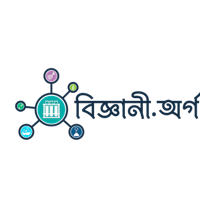
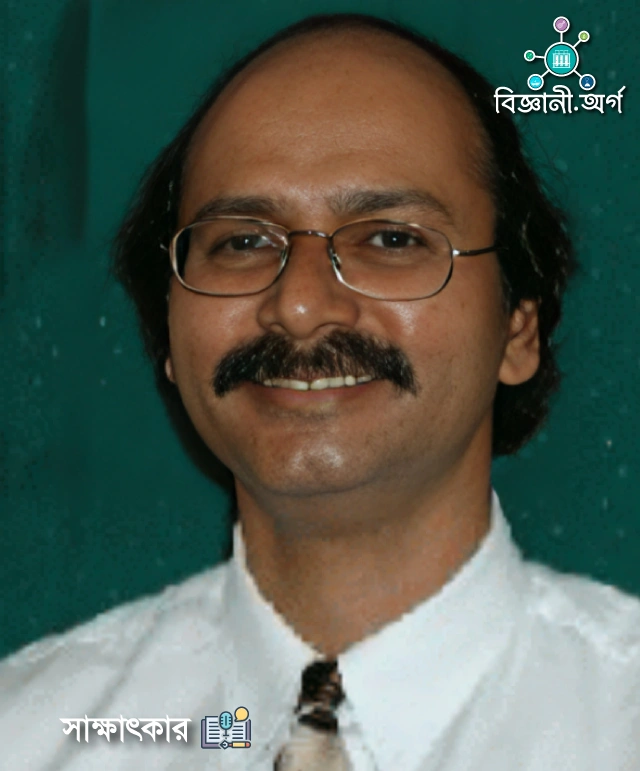


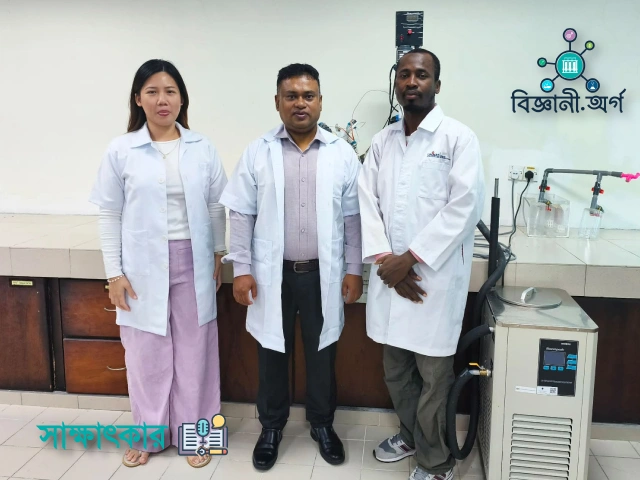
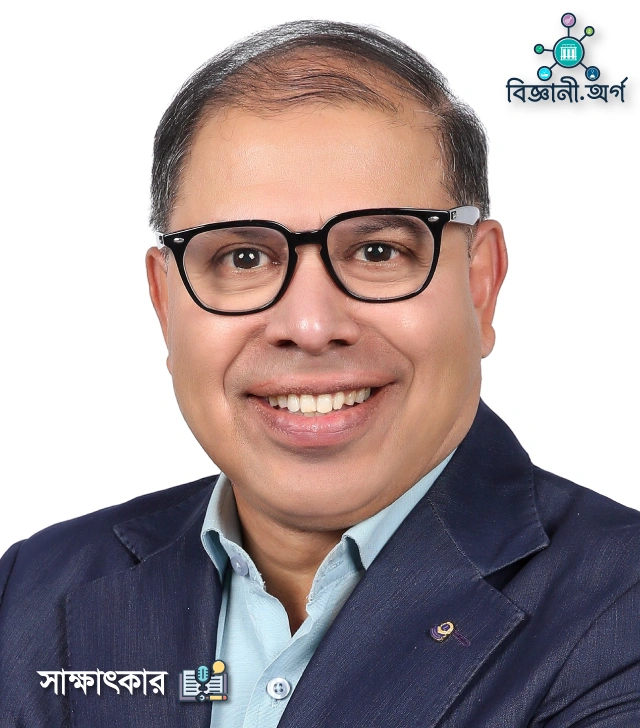
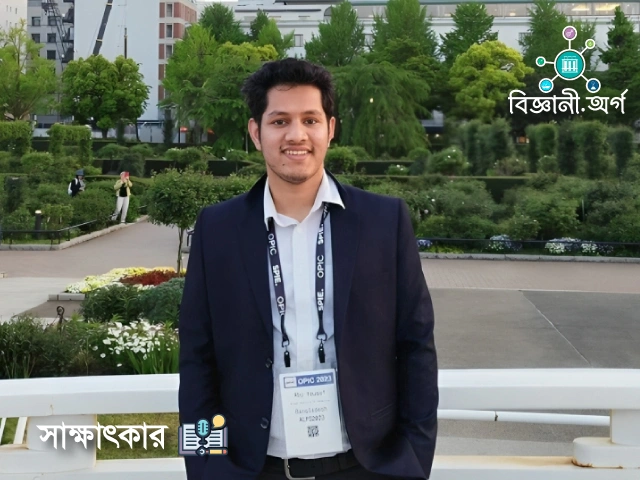
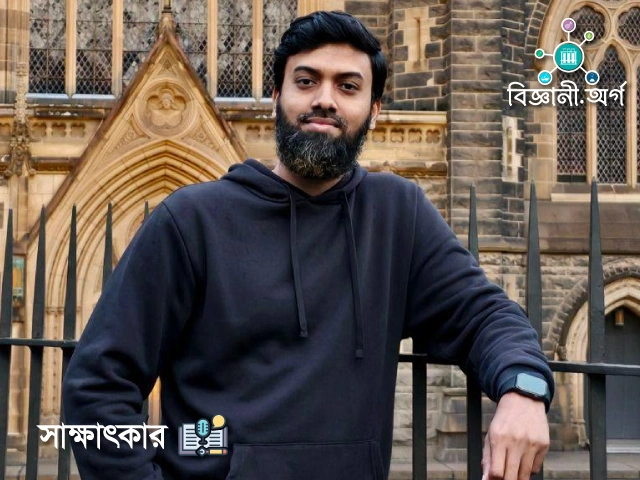

I am Highly praised….
Greetings Maruf Ahmed,
Thank you for your inspirational comment.
amazing my eyes ave wet after reading